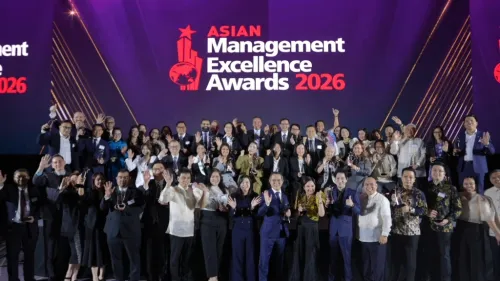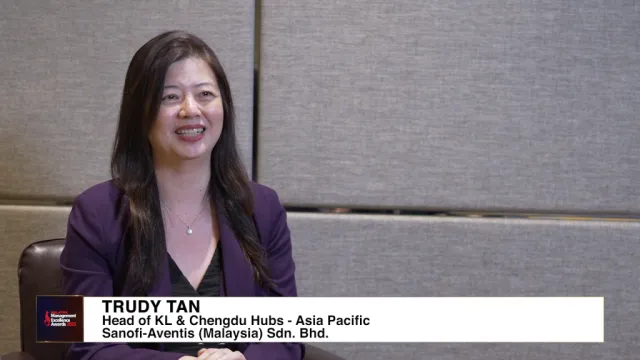
Green finance in APAC to grow amidst data and disclosure gaps
But is it growing fast enough for the region to achieve climate goals?
Green finance is proving to be a rapidly growing sector in 2021. Based on data from the Climate Bonds Initiative (CBI), 2021 green bond issuances might exceed that of last year, with $219.7b issued for the first half of 2021 compared to the US$290.1b issued in 2020. Bonds issued from the Asia-Pacific made up more than a quarter of the first half’s figures, at US$51.9b, just a few millions short from the US$53.2b issued for the entire year of 2020.
China issued approximately US$22b worth of green bonds in the first half, exceeding the combined issuances from South Korea (US$5.9b), Japan (US$5.5b), Singapore (US$5.2b), and India (US$4.6b). Separate from Mainland China’s, a total of US$3.2b worth of green bonds was issued from Hong Kong SAR.
Hong Kong is taking its sustainable finance strategy seriously, with the Hong Kong Monetary Authority-led Green and Sustainable Finance Cross-Agency Steering Group focused on implementing five near-term action points to help the region achieve carbon neutrality before 2050.
Green finance forms a part of Singapore’s Green Plan 2030, as the Lion City aims to turn itself into the centre for environmentally sustainable finance in Asia. Approximately SG$19b projects from the public sector has been identified for green financing, including the Tuas Nexus integrated water and solid waste treatment facility.
Investment in sustainable financial instruments, including green bonds, are on the rise globally. Standard Chartered, in its Sustainable Investing Review 2021, noted that 13% of emerging affluent, affluent, and high net worth investors have sustainable investments making up more than a quarter of their portfolio. An approximate 61% of these investors have placed funds in a sustainable investment solution.
Market uncertainties and an increasing awareness on the inevitability of climate change are amongst the reasons that investors are keen on green bonds, said KPMG Partner and Head of Financial Services Anton Ruddenklau in an interview with Singapore Business Review.
“Investors effectively, are spending less and getting higher returns on green bonds, than they are on other bonds. And that's also showing up in the level of oversubscription on bond issuance. So everyone wants bonds right now, they want certainty. They're the most popular category of bond versions right now. So that bodes really well for your supply and demand and growth going forward,” Ruddenklau said.
Businesses are also keen on issuing green bonds for a number of reasons, KPMG Partner for Financial Services Advisory Leon Ong told Singapore Business Review.
“It’s a positive story for the company trying to do the green bond issuance. Also, by doing such a thing, you do tend to find like-minded investors and individuals out there. You open up to a part of the population of investors that you might not have had before,” Ong said, adding that the positive marketing story is still secondary to the need for traditional companies to increase their exposure in greener products.
He cited Hong Kong and Singapore as growing markets for green finance, even as China continues to be the juggernaut for the Asia Pacific. “Hong Kong and Singapore, to a certain extent, are moving reasonably in lockstep here. I think that Hong Kong's proximity to China could play a role, particularly if they start to come out and start putting sustainability more at the forefront of their agenda,” Ong said.
The signs that green finance is growing in Asia-Pacific are all there, even if the EU continues to be the leader when it comes to issuances and regulation. But is it growing fast enough to meet climate goals?
The devils in the details: data, definition, and disclosure
Citing reports from the International Energy Agency and the Boston Consulting Group, Monetary Authority of Singapore (MAS) Managing Director Ravi Menon said that green finance needs to massively scale up.
“Green finance has not been able to reach the scale required. According to the International Energy Agency, global investments in energy projects needs to more than double from its current level by 2030 in order to meet net-zero emission goals by 2050. According to a study by the Boston Consulting Group, the volume of climate financing will have to grow over the next three decades by roughly five to eight times the current amounts issued,” Menon said in a speech delivered 8 September 2021.
He then gave three issues that need to be solved in order to scale up investments: data, definition, and disclosure. On data, he cited the lack of sources for reliable and comparable from lenders and investors alike. Moreover, definitions of certain key terms may vary from economy to economy, system to system. Finally, he said that there is currently no one framework for climate-related reporting and disclosure standards for companies, adding that there is currently more than 200 frameworks, standards, and guidances on sustainability reporting and climate-related disclosures.
“Data is definitely coming out to be something that we see as a big problem,” Ong said, adding that people in the financial industry is used to having easy access to consistent data. “Here in the sustainable contest, we don’t really have something that is seen as a consistent market standard.”
For his part, Ruddenklau noted the lack of taxonomy for environmental, social, and governance (ESG) criteria in general: “These are all non-financial in nature, and in some respects, quite existential. The data is just not there.”
But there is some hope that can be seen from the governance side of ESG that could forge a path for the future of green finance. Ruddenklau noted that, based on years of research and data on gender equality and how more equal work forces have better revenue, the financial services firm, JP Morgan, has started factoring in the ratio of male to female senior management employees into equity ratings.
“I think the answer at the moment is for industries to come together, and start to work collectively on building a consortia and proper ecosystems, to pull together information that shouldn’t just be considered a regulatory issue, but an accounting issue,” he added.
There are already initiatives being made to address these issues. The MAS is working with its ASEAN counterparts for a compatible taxonomy for sustainable finance that can work across the banking, insurance, and capital market sectors. The Hong Kong Monetary Authority and Securities and Futures Commission are developing a common ground taxonomy that is compatible with China and the EU, as a part of the International Platform on Sustainable Finance Working Group on Taxonomies.
Economies, financial institutions, businesses, and professional services firms like KPMG continue their respective knowledge and capacity building programs to ensure that issuers and investors alike have access to correct and useful information when it comes to green finance.
That is why KPMG expects green finance to see a significant growth in APAC in the coming years, expecting more issuances from Singapore, Hong Kong, Japan, Taiwan, and Indonesia.



















 Advertise
Advertise









